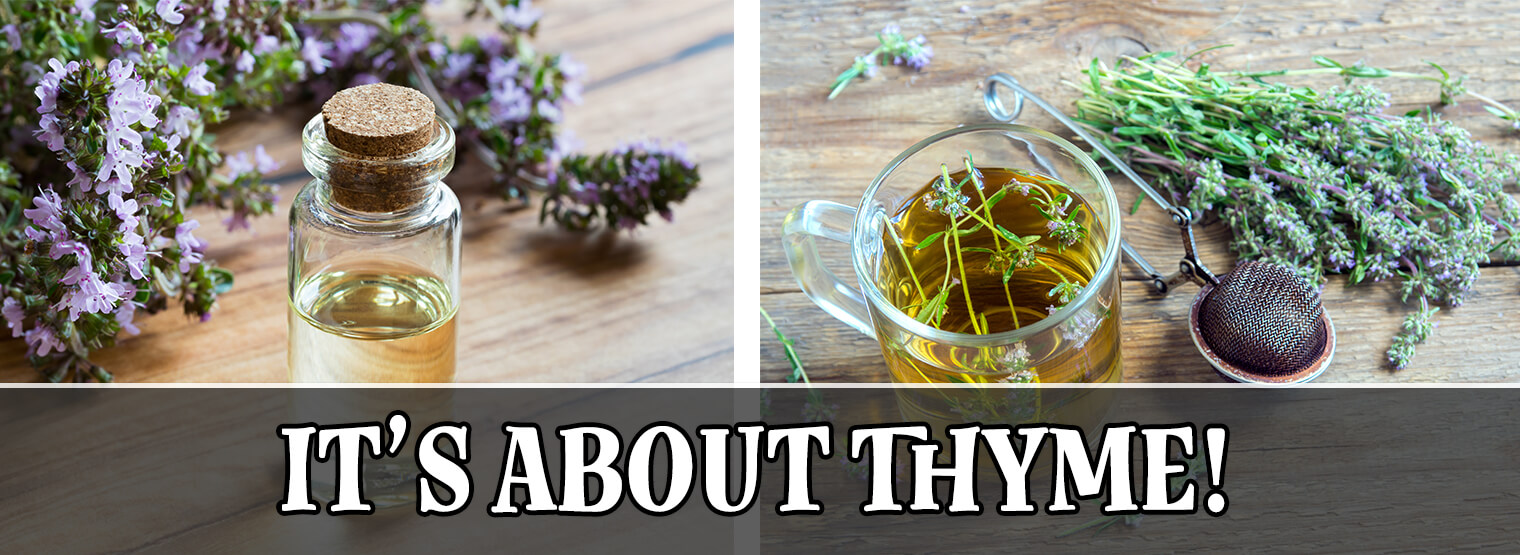 Be Inspired Blog - Arizona
Be Inspired Blog - Arizona

The Top Reasons Why Thyme is Worth Planting
In the kitchen, we usually think about adding thyme to recipes for its subtle aroma and earthy flavor. Not only is this small, attractive herb popularly used in most kitchens, but did you know that there are other helpful benefits that thyme can provide outside of cooking? Keep reading for several uses for this versatile herb and the reasons why thyme is worth planting in your garden.
5 Benefits of Planting Thyme
Although we’ll get into the many uses for this useful herb, we should say from the outset that thyme and its oils should be avoided in extremely high doses if you are epileptic (it can trigger seizures), pregnant or breastfeeding. In these situations, it’s best to stick to normal amounts of the herb. Questions about how much thyme is best for you? Please consult your physician.
Here are 5 benefits to planting thyme:
- Consuming thyme in tea, recipes and oils can have positive health benefits thanks to the vitamins and minerals found inside. They include potassium, iron, calcium, manganese, magnesium and selenium.
- You can reduce the discomfort of gas and bloating by ingesting thyme. This herb’s natural oils can lessen uncomfortable intestinal cramping.
- If you are suffering from respiratory issues like bronchitis, asthma, a sinus infection or blocked sinuses, thyme can provide relief. Herbal Prepper says, “Thyme works on your infection regardless if it is bacterial or viral. It has a calming effect on the nervous system and may help you get some much-needed rest.”
Thyme does wonders for problem skin and possesses amazing anti-bacterial properties that can fight acne and athlete’s foot, and the herb’s oils can even be used as a toner after you wash your face!
- Using thyme oil is great for your hair. Massage some into your scalp to encourage blood circulation in the hair follicles to promote growth. This is especially helpful if you are struggling with thinning hair; thyme can make your hair thicker and prevent more loss. You can also use thyme oil to treat dandruff, and it will leave your locks smelling fresh and clean.
Planting, Growing and Harvesting Thyme
According to the Old Farmer’s Almanac, there are several easy steps to planting thyme, whether you choose to do so in your garden or in containers indoors.
- Buying thyme cuttings or a small plant is the easiest way to get started because growing this herb from seeds can be difficult due to slow, uneven germination.
- Begin by planting your cuttings indoors where you’ll keep them for 6 to 10 weeks. Place them in an area where they’ll receive full-sun for several hours a day. If you would like some guidance on container planting, refer to our blog post about urban container gardening.
- Plant cuttings 2 to 3 weeks in well-drained soil about 9 inches apart. SummerWinds carries a lightweight organic soil that is ideal for starting seeds and root cuttings: Seed Starter Mix (by E.B. Stone Organics). Make sure the soil is about 70º F before you plant.
- In the vegetable garden, plant thyme near cabbage or tomatoes to help it thrive. You can also line a garden wall or the edge of your walkway with the plants, which will grow 6 to 12 inches high.
Thyme is a versatile herb that tastes delicious and has countless health benefits. Consider planting it as you prepare for your future spring garden, or grow it in indoor containers year-round!


 Thyme does wonders for problem skin and possesses amazing anti-bacterial properties that can fight acne and athlete’s foot, and the herb’s oils can even be used as a toner after you wash your face!
Thyme does wonders for problem skin and possesses amazing anti-bacterial properties that can fight acne and athlete’s foot, and the herb’s oils can even be used as a toner after you wash your face!
